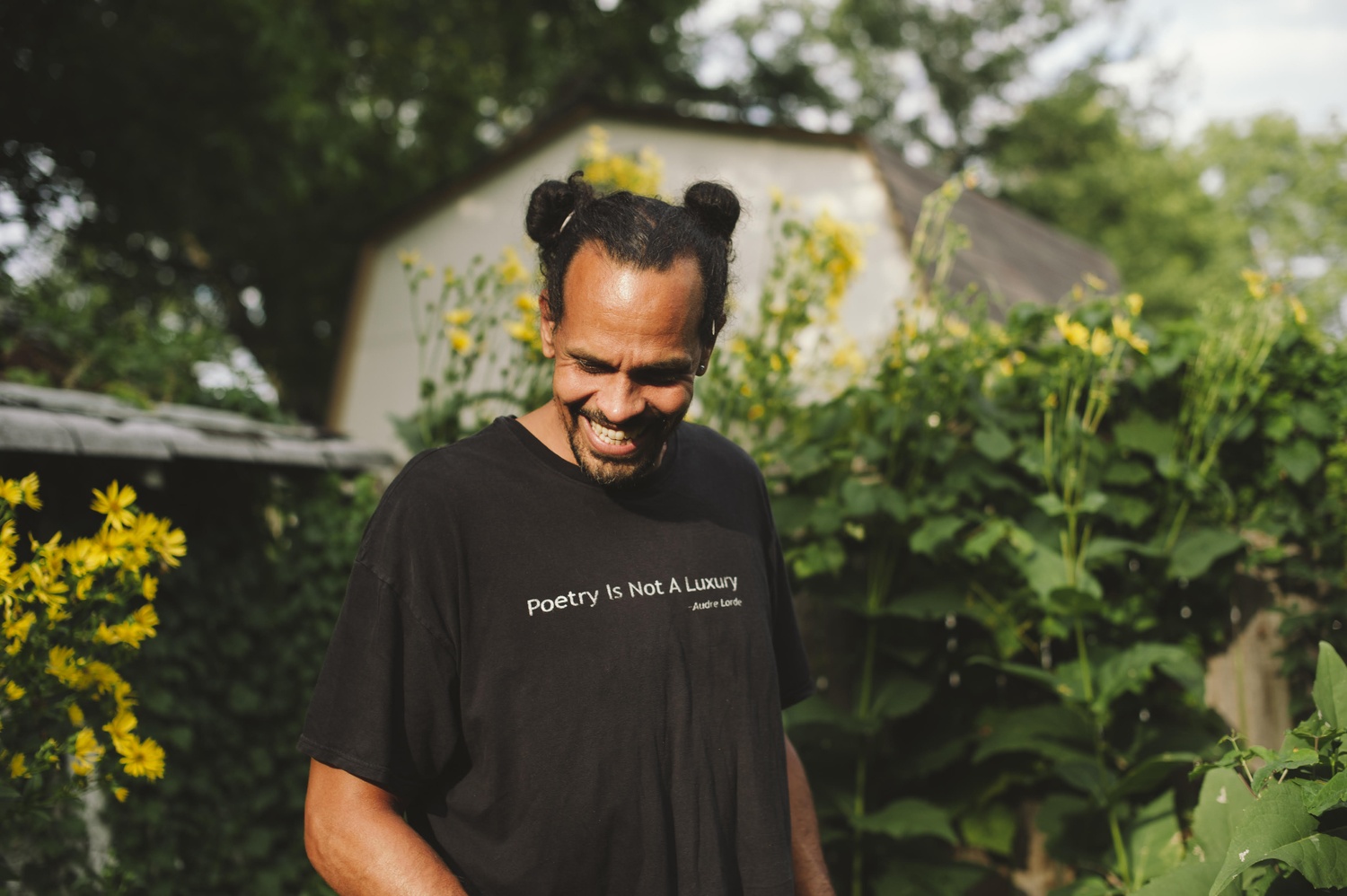
News
Garber Privately Tells Faculty That Harvard Must Rethink Messaging After GOP Victory

News
Cambridge Assistant City Manager to Lead Harvard’s Campus Planning

News
Despite Defunding Threats, Harvard President Praises Former Student Tapped by Trump to Lead NIH

News
Person Found Dead in Allston Apartment After Hours-Long Barricade

News
‘I Am Really Sorry’: Khurana Apologizes for International Student Winter Housing Denials
Artist Spotlight: Ross Gay

Ross Gay, one of this year’s Radcliffe Institute for Advanced Study Fellows, was recently named as a finalist for the National Book Award in poetry for his collection “Catalog of Unabashed Gratitude.” Gay is an associate professor of English at Indiana University, in Bloomington, as well as an orchardist, gardener, and kettlebell teacher. The Crimson had the chance to sit down with him and ask him about his most recent and upcoming work.
The Harvard Crimson: What projects are you working on as a Radcliffe Fellow?
Ross Gay: There are a few that I’m working on. The Georgics project [a response to Virgil’s “Georgics”] is still sort of turning around in my head…. Another book I’m in the middle of writing right now is this book about my own relationship to the land. I’m talking about race and nation and the imagination. And the last project I’m working on is a poem that uses this one famous move by the basketball player Dr. J; it meditates on this move as a way to think about flight and falling and the imagination.
THC: How did you get interested in those subjects?
RG: The “Georgics,” the “Black Georgics,” or “Anthropocene Georgics”, however it’s going to be—that’s a project that has become interesting by reading Virgil’s “Georgics,” which is a book that is totally fascinating and weird and useful and everything else. The other thing is that I’m a very serious gardener and orchardist, and it’s a kind of grower’s handbook, an agricultural handbook.… The other book...about my relationship to the land—that is inspired by my increasing interest in working with the land explicitly. But also it’s inspired by some untold stories in my family history, some investigation into what’s happening with the land, what has happened historically with the land, how some of those stories have unfolded due to slavery and due to various other policies. All of these things feel really provocative and interesting to me.
THC: Could you tell me about your gardening and orchard work?
RG: I have my own garden, which is pretty involved, and a lot of fruit trees. I grow garlic and potatoes and onions and collards and kale and chard and other kinds of greens and blueberries and blackberries and raspberries and gooseberries and serviceberries and figs and jujubes and on and on and on.… And I work with the Bloomington Community Orchard. It’s a non-profit, free-fruit-for-all orchard that’s entirely volunteer-run and a really interesting civic, food justice collaboration project.
THC: In your poetry, you seem to find significance not necessarily in some grand wilderness but in everyday nature. Why do you believe this topic is important?
RG: Well, one of the things that I think that the book [“Catalog of Unabashed Gratitude”] is trying to do is to kind of cultivate in myself…a kind of reverence for the everyday, which is not in fact everyday.… I’m far more interested, frankly, in the little, the stuff that is not particularly grand or “big-P poetic.” I’m way more interested in these small interactions or observances that to me, with some meditation, with some study, become filled with the same kind of wonder as a “sublime” thing.
THC: I recently read an essay you wrote for Sun Magazine about structural racism. At the end of the piece, you have this vision inspired by an encounter with a beehive of how, through mercy, these systems can be reimagined. What relationships do you see among the race, the land, and the ways in which nature can help us to see things differently?
RG: This is something I’m thinking about right now. I’m thinking about a really interesting metaphor. The metaphor is that planting a seed is a kind of generative act. It’s an act also that requires a certain kind of capacity for metaphor—you have to understand that this thing is that thing, and that that thing is ideally going to feed people. So it seems to me that there is something really profoundly important about understanding that, even if we don’t have the capacity to do that...to understand that as a fundamental way of thinking about possibility, which to me feels precisely the opposite of the closing down of the imagination that racism is or requires. It’s a kind of anti-generative imaginative process, whereas the land or an intimate relationship with the land potentially is always imagining ourselves and others into the future.
—Staff writer Amy J. Cohn can be reached at amy.cohn@thecrimson.com.
Want to keep up with breaking news? Subscribe to our email newsletter.
